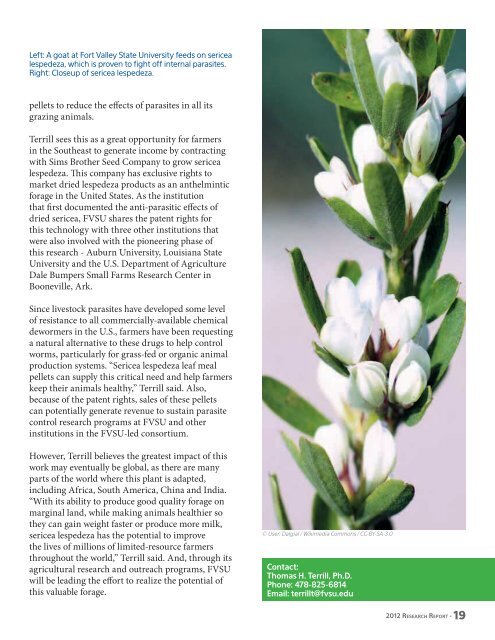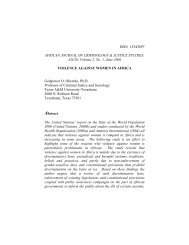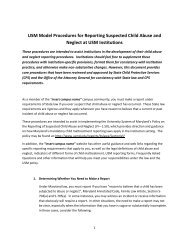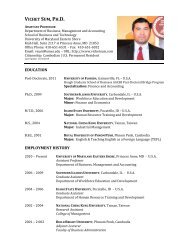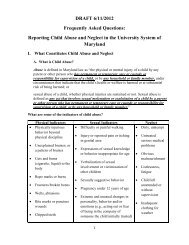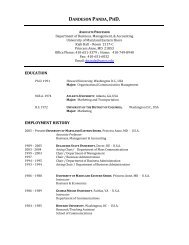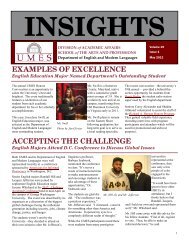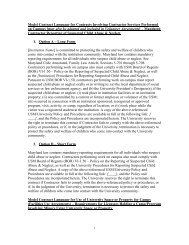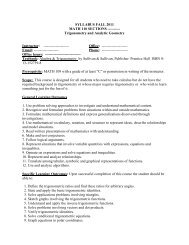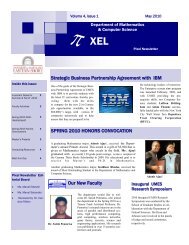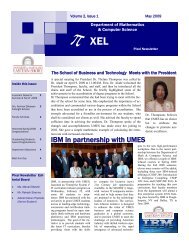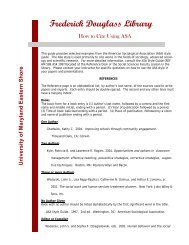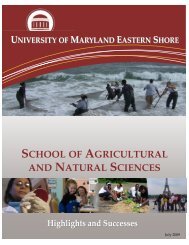FVSU Research Report 2012 - Fort Valley State University
FVSU Research Report 2012 - Fort Valley State University
FVSU Research Report 2012 - Fort Valley State University
Create successful ePaper yourself
Turn your PDF publications into a flip-book with our unique Google optimized e-Paper software.
Left: A goat at <strong>Fort</strong> <strong>Valley</strong> <strong>State</strong> <strong>University</strong> feeds on sericea<br />
lespedeza, which is proven to fight off internal parasites.<br />
Right: Closeup of sericea lespedeza.<br />
pellets to reduce the effects of parasites in all its<br />
grazing animals.<br />
Terrill sees this as a great opportunity for farmers<br />
in the Southeast to generate income by contracting<br />
with Sims Brother Seed Company to grow sericea<br />
lespedeza. This company has exclusive rights to<br />
market dried lespedeza products as an anthelmintic<br />
forage in the United <strong>State</strong>s. As the institution<br />
that first documented the anti-parasitic effects of<br />
dried sericea, <strong>FVSU</strong> shares the patent rights for<br />
this technology with three other institutions that<br />
were also involved with the pioneering phase of<br />
this research - Auburn <strong>University</strong>, Louisiana <strong>State</strong><br />
<strong>University</strong> and the U.S. Department of Agriculture<br />
Dale Bumpers Small Farms <strong>Research</strong> Center in<br />
Booneville, Ark.<br />
Since livestock parasites have developed some level<br />
of resistance to all commercially-available chemical<br />
dewormers in the U.S., farmers have been requesting<br />
a natural alternative to these drugs to help control<br />
worms, particularly for grass-fed or organic animal<br />
production systems. “Sericea lespedeza leaf meal<br />
pellets can supply this critical need and help farmers<br />
keep their animals healthy,” Terrill said. Also,<br />
because of the patent rights, sales of these pellets<br />
can potentially generate revenue to sustain parasite<br />
control research programs at <strong>FVSU</strong> and other<br />
institutions in the <strong>FVSU</strong>-led consortium.<br />
However, Terrill believes the greatest impact of this<br />
work may eventually be global, as there are many<br />
parts of the world where this plant is adapted,<br />
including Africa, South America, China and India.<br />
“With its ability to produce good quality forage on<br />
marginal land, while making animals healthier so<br />
they can gain weight faster or produce more milk,<br />
sericea lespedeza has the potential to improve<br />
the lives of millions of limited-resource farmers<br />
throughout the world,” Terrill said. And, through its<br />
agricultural research and outreach programs, <strong>FVSU</strong><br />
will be leading the effort to realize the potential of<br />
this valuable forage.<br />
© User: Dalgial / Wikimedia Commons / CC-BY-SA-3.0<br />
Contact:<br />
Thomas H. Terrill, Ph.D.<br />
Phone: 478-825-6814<br />
Email: terrillt@fvsu.edu


